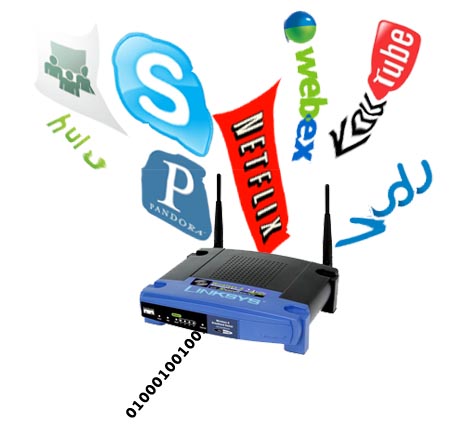Must...have...faster...broadband!

3mbps. Just a few years ago, this wasn't too shabby as US internet service went. There was certainly much faster broadband to be had, but plain old 3 meg DSL was very passable. Guess what? It stinks now.

Now, we have resident ZDNet networking guru, Steven J. Vaughan-Nichols, asking if we'd be willing to spend upwards of $200 a month on service that is 45 times that fast. The answer, from the depths of DSL hell, is ABSO-Freakin-LUTELY!
I know, I know, there are starving children in Ethiopia who don't even have broadband. I should be grateful for what I have, right? Of course, there are also slightly more fortunate children in Africa who have better bandwidth than I do, thanks to programs like Intel's Rural Connectivity Platform.
But here's the thing. If I lived two miles west of where I do now, I'd be stuck on dial-up for the foreseeable future. I'd have fiber running on the telephone poles outside my house, but, due to some horrifically short-sighted policies put into place 10 years ago, I'd just be imagining the Comcastic pulses of light flying up to New Hampshire and leaving me in the broadband stone age.
Even at 3mbps, though, it's increasingly difficult to effectively run a business out of my home or support my kids' growing educational and social uses of the Internet. It doesn't take many simultaneous Skype sessions to really start seeing just how slow 3 megs really is.
Does it sound like I'm whining? Maybe I am, but I don't think it's that simple. When I can't stream a low-definition movie over Netflix without buffering when a kid wants to watch a YouTube movie at the same time or put my daughter to sleep with her favorite Pandora station (electric blues, for the record) while another kid is Skyping with an instructor for help on an assignment, then there's a problem.
If this were just about entertainment, then it would be completely reasonable to tell me to suck it up. In fact, it was entertainment that set me off. My oldest son bought a great Internet-connected Blu-Ray player for the family on Black Friday. After a bit of wrestling with Ethernet cables (and here I thought my Cat 5-pulling days were over), we were ready to not only watch Blu-Ray movies, but beautifully up-converted DVDs, streaming Netflix, and streaming high-definition Vudu and YouTube. All for $94. Thank you, WalMart.
And then the firmware update failed because of Internet connectivity issues. Not a problem, though...Who needs firmware updates, right?
Then the Netflix movie kept buffering. But a holler upstairs to get off YouTube and stop playing WoW only irritated 2 kids and got us rolling.
Then a network test for our Vudu free trial told us that we just barely qualified for HD streaming, but not for full 1080p. Good thing I cheaped out on that LCD TV and just went with the 720p. Or so I told myself.
So sure, this blog started with entertainment needs, but this is hardly a new problem for my household nor one that is exclusive to my band of geeks. When our bandwidth limitations really started to interfere with conferencing with clients, my web servers, my ability to test new devices, and my ability to publish multimedia content efficiently, I called Verizon to see what they suggested.
"Yes, I know that there is a practical limit to the number of computers I can connect to my network."
"Yes, I'm well aware that this is a residential DSL line."
"No, I'm not willing to pay for a T1 installation."
"So I should go ahead and buy 2 or 3 DSL connections and a device to aggregate bandwidth?"
"Yes, AGGREGATE. I don't want to have 3 different networks in my house."
"AGGREGATE. Or even fail over."
"No, A-G-G-...Never mind."
This isn't just about entertainment, or business, or school. It's about the potential of the Internet and the way a dismal lack of investment on the part of the government and telephone companies is preventing too many Americans outside major urban and suburban areas from accessing all of the resources and business opportunities the Internet has to offer. Recent statistics show a significant divide even in urban areas along socioeconomic lines in terms of broadband access and affordability.
Want to talk stimulus packages? How about we stop replacing perfectly nice road signs and repaving smooth roads and start seriously getting behind the National Broadband Plan? Even that's woefully inadequate, but it's a major step forward from where we are today. Equal opportunities are no longer about affirmative action or school choice (or any number of other initiatives intended to level the playing field). More and more, equal opportunities mean equal access to the Internet.
Besides, I don't even want to think how long it will take an HD YouTube video to load on that new Blu-Ray player.